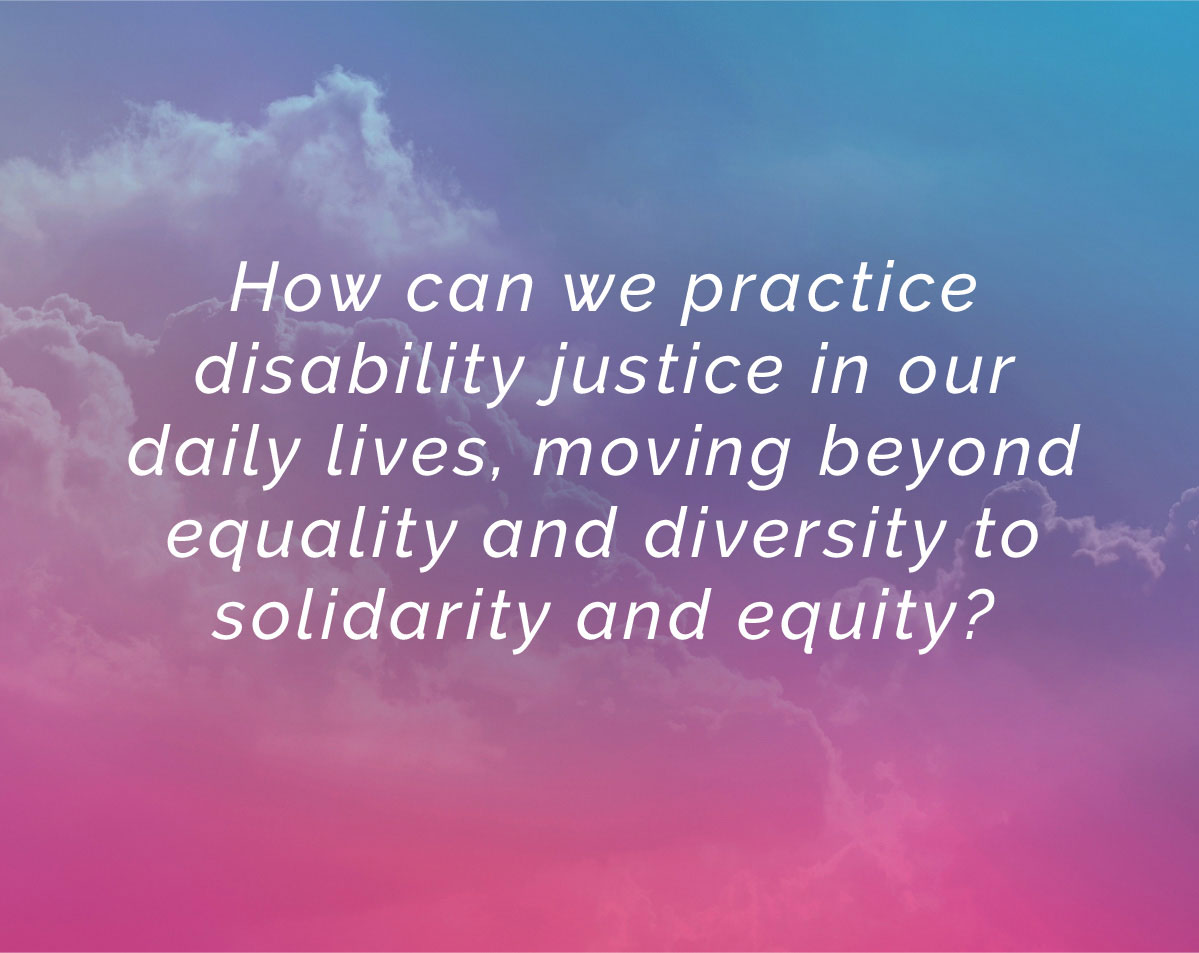Brianna
Working toward
solidarity and equality

We need to hear from people who live at the intersection of multiple identities, but all too often, their voices are suppressed, if not erased, from the narrative.
This is the world we live in. And, unfortunately, the SMA community is not exempt from a variety of “isms” – including racism, sexism, classism, homophobia and transphobia.
So what do we do? How do we practice disability justice in our daily lives, moving beyond equality and diversity – kinds of social activism that, while helpful, address the symptoms of oppression, not the root cause – to solidarity and equity?
“The work begins with humility, and a decision to listen.”
Take an audit of the voices you follow. How many identify as a person of color? How about queer or trans? Is your disability community diverse in background, experiences, culture?
The work begins with a conversation. There are people in our community, and the disability community at large, who have been doing this work for ages, people who are consistently undermined or forgotten.
“They are the voices we should be listening to. Show up, even when it's uncomfortable.”
If you experience any kind of privilege, commit to amplifying the voices of the marginalized. It's not charity. It's solidarity. I would even go so far as to consider it a responsibility.
The work starts right here, right now. So let's get to it.